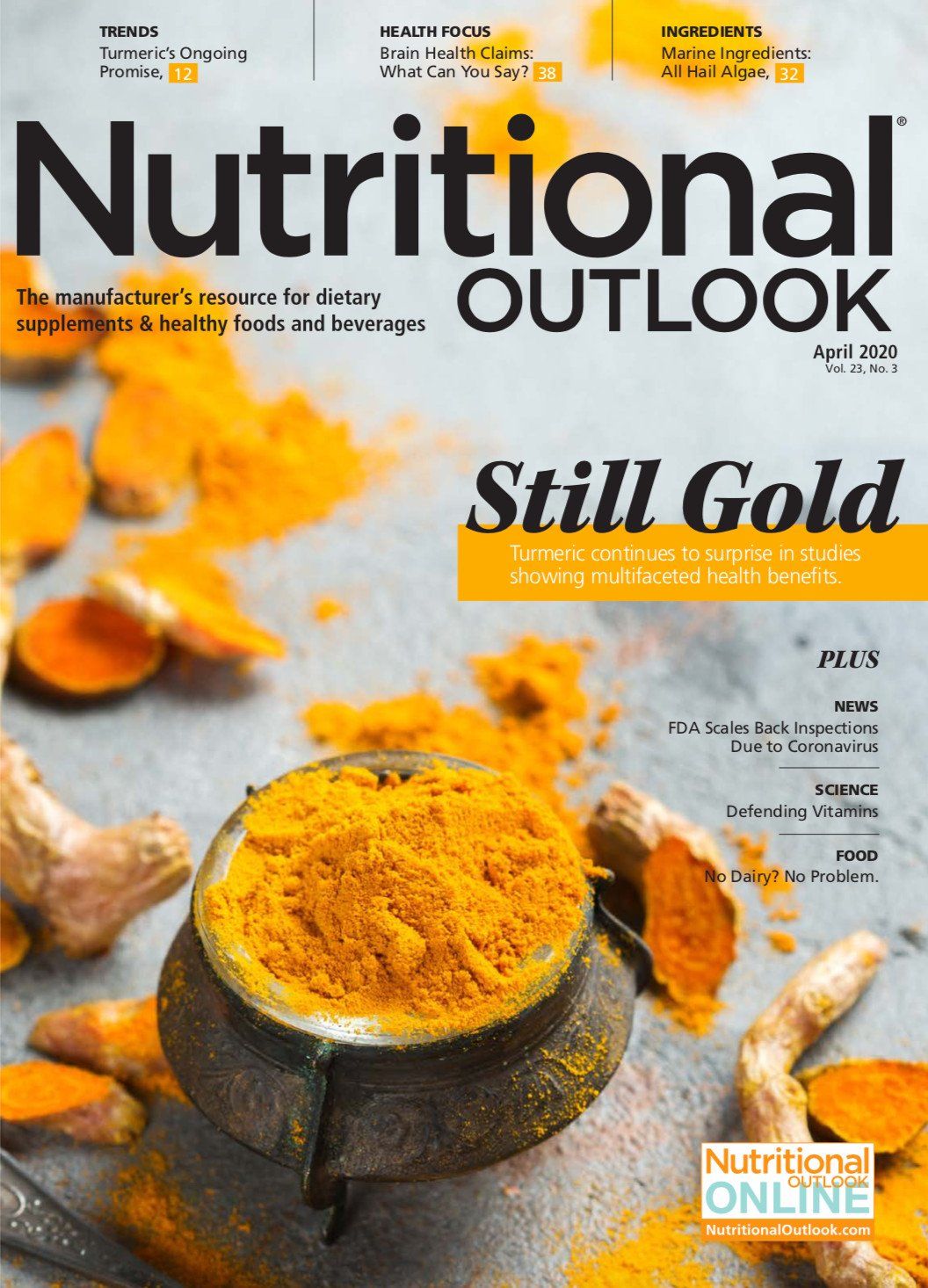What concerns do college coaches and student athletes have about sports supplements?
A coaching survey on dietary supplements emphasizes the need for teamwork and education.
Photo © stock.adobe.com/Rawpixel.com

In 2019, global public health organization NSF International (Ann Arbor, MI) collaborated with women coaches organization WeCOACH to survey a select group of WeCOACH members on how dietary supplements are seen and understood by both coaches and student-athletes. While some results were not surprising (social media looms large), many respondents had strong responses regarding the challenges, concerns, and “red flags” when it comes to dietary supplement use.
Survey participants included athletic directors, head coaches, assistant coaches, and strength coaches from colleges, universities, and academies across the United States, from a broad spectrum of sports, including:
• Cross Country/Track & Field
• Golf
• Gymnastics
• Lacrosse
• Rowing
• Soccer
• Softball
• Swim & Dive
• Tennis
The survey probed the following topics related to how student-athletes choose and use a dietary supplement: the role of the coach when it comes to dietary supplement education, concerns about worrisome supplement ingredients, the role of the National Collegiate Athletic Association (NCAA), and the challenges faced when trying to add supplement education to students’ already-packed schedules.
Here are some of the takeaways on how student-athletes and coaches approach the topic of dietary supplementation.
Bringing in the Experts
Respondents repeatedly stressed the importance of bringing dietary experts, such as the team’s registered dietitian (RD) or athletic trainer, into any conversation about supplements as soon as possible.
“I think it’s important for coaches to be knowledgeable about supplements, especially supplements that pertain to their sport,” said Ashley Bastron, Women’s Assistant Cross Country/Track & Field Coach at Wake Forest University. “For example, it’s good for cross country coaches to understand the impact that iron supplements can play. However, it’s important for coaches not to play nutritionist. Don’t try and be a doctor.”
Indiana University Associate Softball Coach Kendall Fearn agreed, recommending “clean and consistent communication and referral to an athletic trainer or dietician who will take a look at the ingredients” in a supplement under consideration.
When asked about bringing up supplement safety with student-athletes, Georgetown University Women’s Assistant Soccer Coach Lyndse Hokanson also emphasized the importance of input of a nutritional expert. “If I were to be approached about supplements by one of our student-athletes it would be a conversation that would loop in our athletic trainer, our strength and conditioning coach, and obviously our head coach,” said Hokanson.
Education about dietary supplements happens both in group settings and one-on-one conversations, but the coach’s reliance on the expertise of dietary specialists, like an RD, is paramount in either setting. George Washington University Rowing Head Coach Marci Robles makes the position clear: “We always encourage student-athletes to seek advice and guidance from our athletic trainer before taking anything.”
Red Flags and Worrisome Ingredients
Registered dietitians with expertise in understanding supplements are important for more than just the student-athlete’s athletic success; they also contribute to the student-athlete’s overall health and well-being. These dieticians can also guide student-athletes when it comes to questionable supplement ingredients.
Lewis & Clark College Head Strength Coach Angela Dendas-Pleasant reminds student-athletes that “supplements are more than just protein powder,” and cautions students “to read through the ingredients and if they don’t know the ingredients, then don’t take it.”
Athletes need to be vigilant about what they put into their body to not only protect their health but to also avoid testing positive for banned substances during a drug test. Samantha Eustace, Lacrosse Head Coach at Mercer University, warns against “ingredients ending in -ol, -diol, or -stene, or ones that contain a lot of numbers.” These ingredients, along with those ending in -heptane, -hexane, -amine, or -arine, may indicate that a stimulant or steroid is present in the product.
Kelsey Hinton, Gymnastics Head Coach at William & Mary College, reminds her athletes about a simple but deceptive ingredient, sugar, noting that “all smoothies are not good smoothies.” Various products make claims of ingredients being ‘all-natural’ or ‘healthy’ but commonly contain lots of sugar. Whether a product is sourced from natural ingredients or otherwise, 40 grams of sugar is still 40 grams of sugar.
The Role of the NCAA
When asked what student-athletes should consider when shopping for supplements, the coaches highlighted the student-athlete’s personal responsibility when it comes to avoiding substances banned by the National Collegiate Athletic Association (NCAA) or the World Anti-Doping Agency (WADA). “The most important job we have as coaches is to ensure that athletes are making choices that are NCAA compliant and that are beneficial to them in the short- and long-term,” said Hokanson.
But ultimately, the responsibility for supplement use falls to the student-athlete. Per the NCAA website, “In addition to performance-enhancing drugs, alcohol, and other recreational drugs, dietary supplements can be dangerous to a student-athlete’s health and may contain NCAA-banned drugs. Supplements are not required to be tested for purity, effectiveness, or safety before going to market. Also, their labels may not accurately reflect what’s in the bottle. Many student-athletes have lost eligibility for using a supplement they thought was safe, only to test positive because the supplement was contaminated with a banned steroid or stimulant.”1
“We are not against supplements,” said Caroline Powers, Women’s Golf Assistant Head Coach at Michigan State University. “But we want them to be safe and legal within the NCAA. Making products that align with that is more important than anything else.”
The Female Difference
When asked about particular concerns for female athletes when it comes to dietary supplements, multiple respondents cited concerns about supplements designed and marketed to help athletes “get huge.” While these marketing tactics are generally targeted to males, they still also reach female athletes, and the concern is that products in this category are commonly found to be adulterated or even found to contain steroids and other prohibited substances. Sometimes these substances are not listed on the label.
Other female-centric concerns around supplements related to issues of body image; coaches expressed concern that female athletes may substitute supplements for a healthy meal plan or may be motivated to use supplements to improve physical appearance rather than to improve overall health or athletic performance.
Information Overload
When asked about the biggest challenge in teaching athletes about dietary supplements, the issue of information overload cropped up repeatedly. “The biggest issue athletes face is the amount of information out there,” said Bastron. “It’s too much, and it’s too easy to get mixed messaging. It’s hard to know what and who to listen to, especially since so many supplements are not monitored.”
It’s unsurprising that coaches are also concerned about peer pressure and the role of social media. “Obviously, word of mouth and social media are some of the strongest influences on our athletes,” said Fearn.
And just because a supplement is getting a lot of attention or usage, it doesn’t guarantee that the supplement is safe. “Our athletes may have friends in non-NCAA sports who just use supplements at the gym,” said Alice McCall, Assistant Men’s and Women’s Swim & Dive Coach at Florida Atlantic University. “They see the supplements that are working, but they may not be NCAA/WADA compliant.”
Powers takes it one step further, by stressing that athletes should only utilize certified products and not rely on word of mouth or the assurances of a retail clerk when it comes to purchasing products, including those labeled as organic or “FDA approved.” The FDA does not approve supplements, nor does the NCAA. Athletes should avoid products making these claims as they are commonly found to either be adulterated or contain harmful and/or banned ingredients.
Making Time for Supplement Education
As might be expected of coaches in an academic setting, the overall focus when asked about how to improve conditions was often the most obvious one: increase education. Coaches stressed the importance of educating student-athletes about reading and understanding product labels and looking for products that have been certified by an independent organization. According to Fearn, “The biggest challenge in teaching athletes about supplements is providing the educational structure needed to best inform them of the safety and compliance of supplements.”
“It means we have to make the time to educate them. We focus a lot on areas of health and well-being, but we haven’t addressed supplements,” said Robles. “I think just as we’re charged with creating an environment of compliance, we’re also charged with creating an environment in which we promote healthy habits as it relates to nutrition, fuel and supplements.”
Dana Leenheer is the Technical Scheme Manager for Dietary Supplements at NSF International, focused on the NSF Certified for Sport certification. Prior to NSF International, Leenheer acted as a Therapeutic Use Exemption and Drug Reference Program Lead for the U.S. Anti-Doping Agency.
References:
1. National Collegiate Athletic Association (NCAA) website. “Dietary Supplement” page. Accessed at: http://www.ncaa.org/sport-science-institute/dietary-supplements.




















